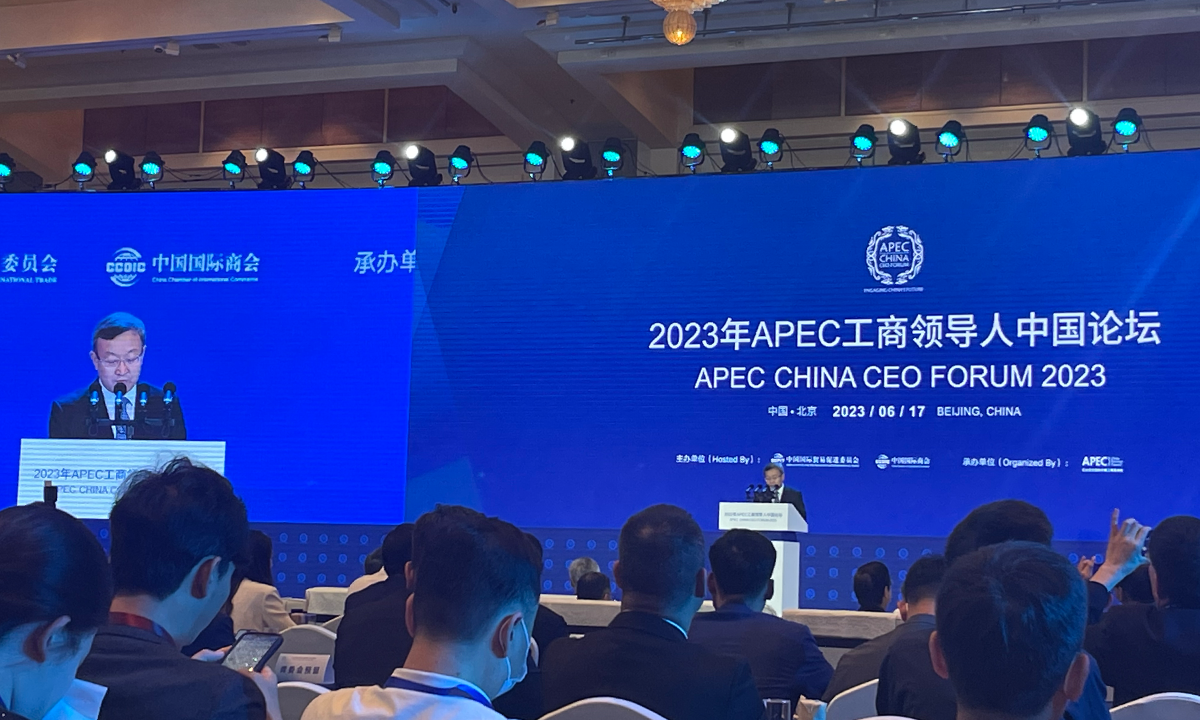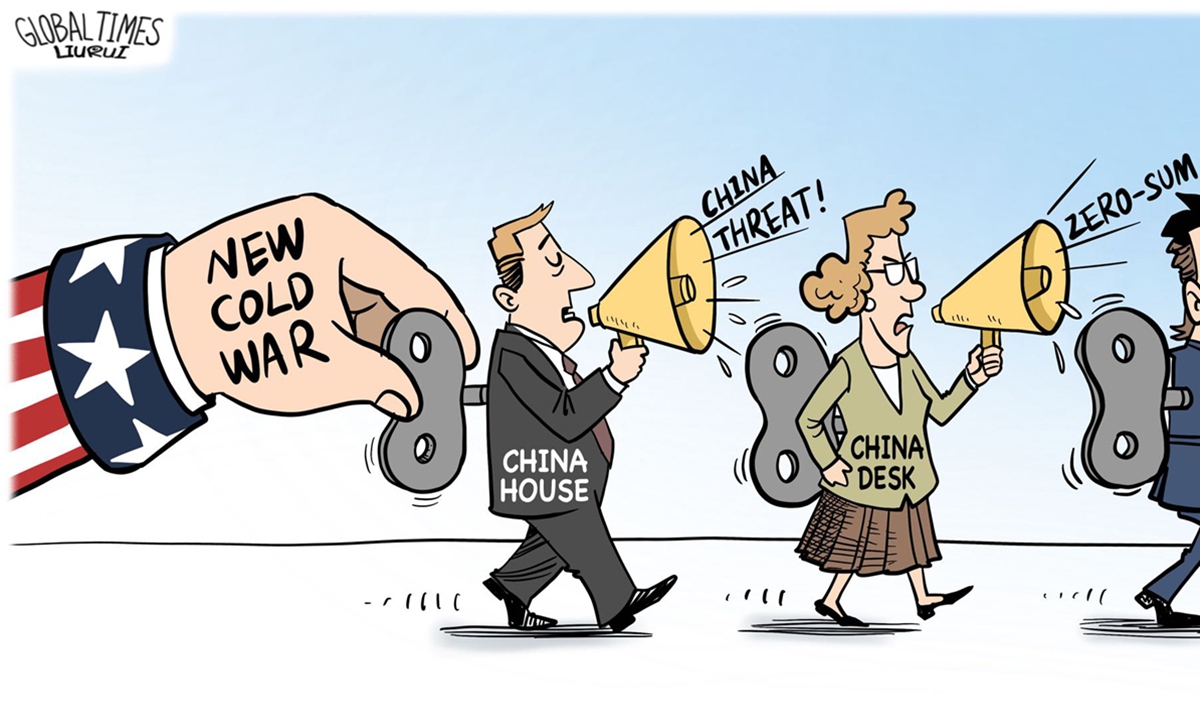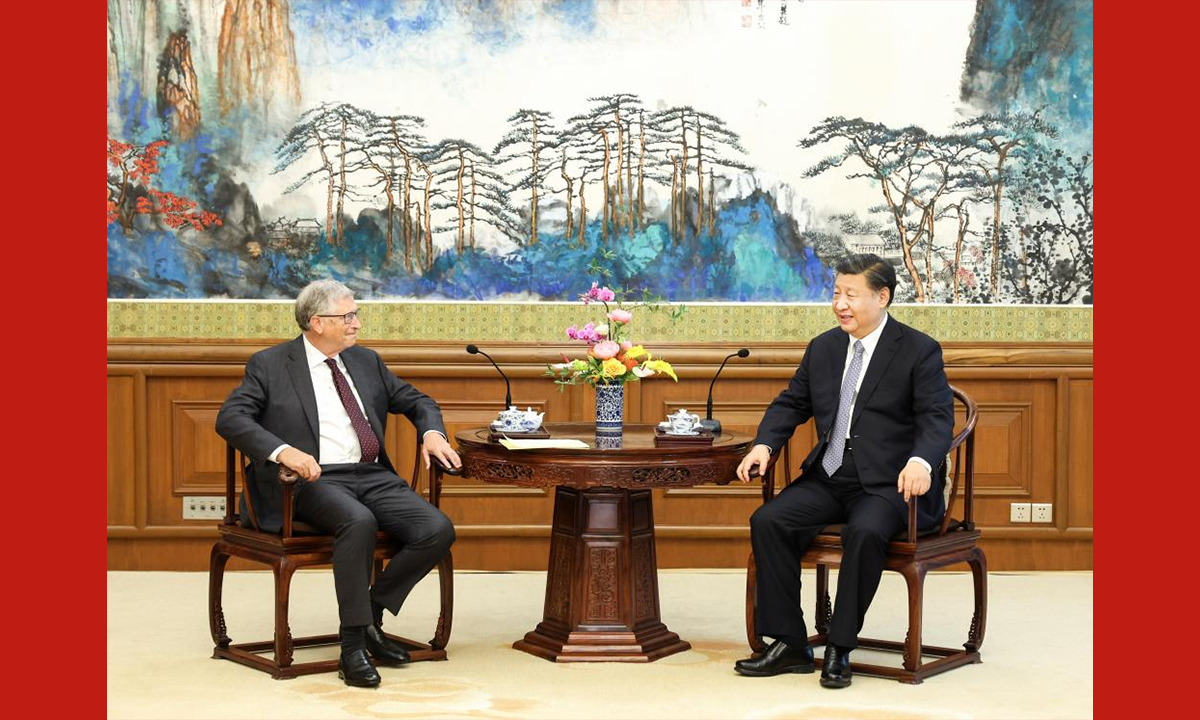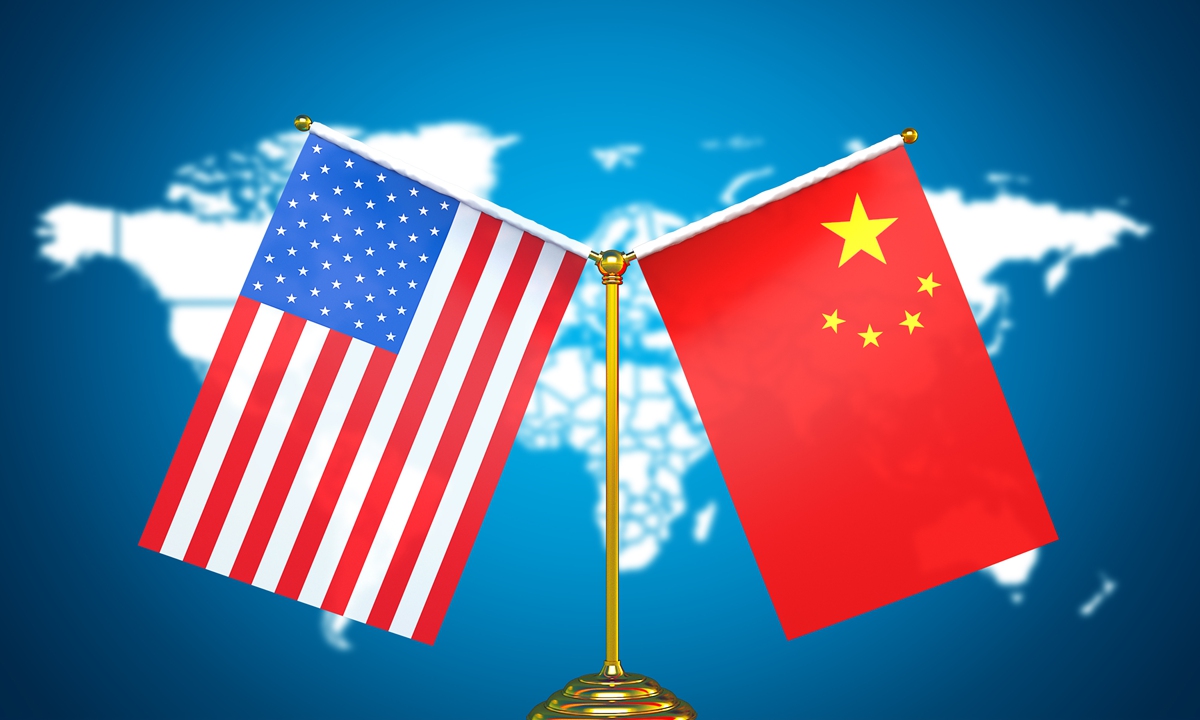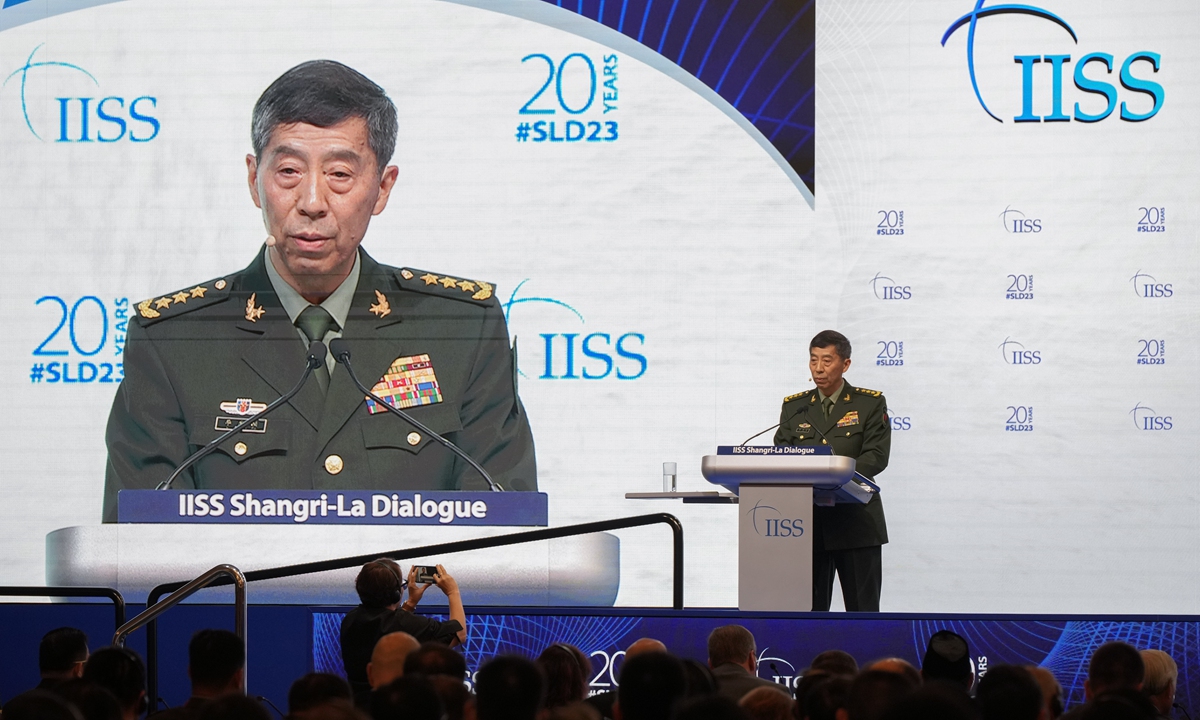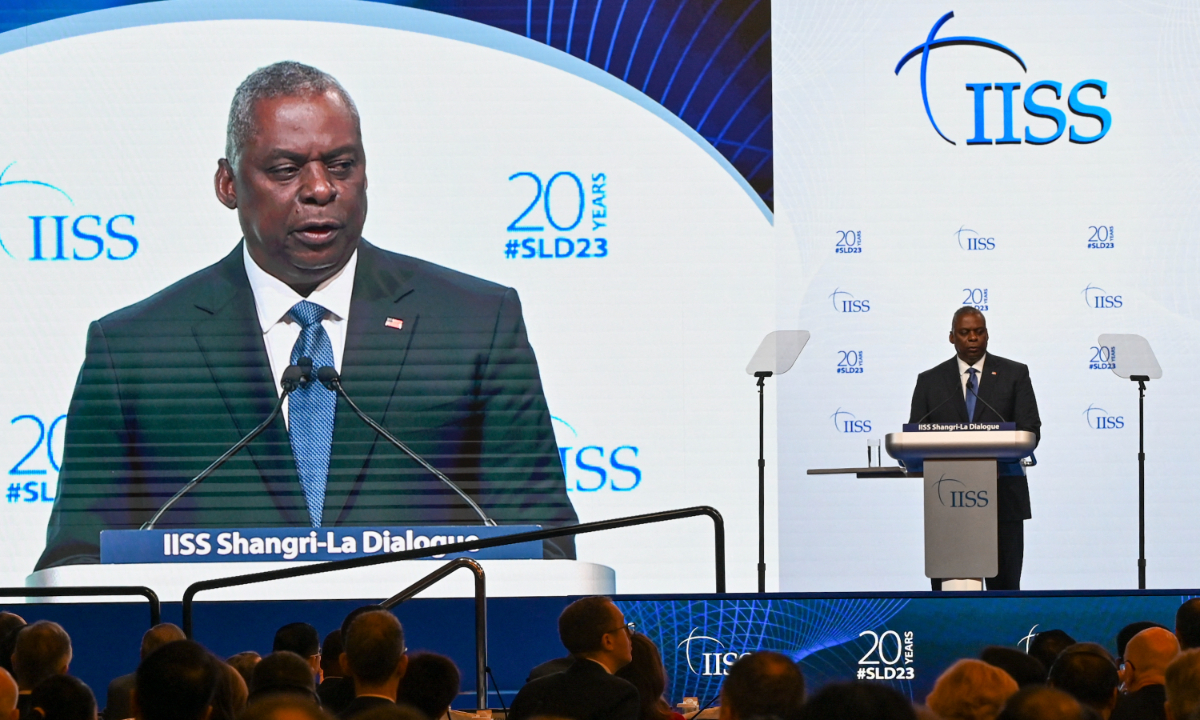As agreed upon by both China and the US, US Secretary of State Antony Blinken will visit China from June 18 to 19, the Chinese Foreign Ministry said on Wednesday.
Current atmosphere between China and the US is very bad, how to avoid miscalculations and conflicts?
Chinese Foreign Minister Qin Gang speaks with Blinken, clarifying China’s stance on core concerns including Taiwan question
Chinese State Councilor and Foreign Minister Qin Gang had a phone call with US Secretary of State Antony Blinken on Wednesday at the latter’s request, clarifying China's firm stance on core concerns such as the Taiwan question, according to a statement from the Chinese Foreign Ministry.
Qin pointed out that since the beginning of the year, China-US relations have faced new difficulties and challenges, and the responsibility is clear. China has always viewed and handled China-US relations following the principles of mutual respect, peaceful coexistence, and win-win cooperation proposed by Chinese President Xi Jinping.
Qin clarified China's firm stance on core concerns such as the Taiwan question, emphasizing that the US should respect it, stop interfering in China's internal affairs, and stop harming China's sovereign security and development interests in the name of competition.
The Chinese diplomat said he hopes that the US will take practical actions to implement the important consensus reached between the two heads of state at the G20 Bali meeting and the relevant commitments made by the US, move toward China, effectively manage differences, promote exchanges and cooperation, and get China-US relations back on track to healthy and stable development.
Washington continued hyping China-related topics ahead of a reported trip by Blinken to China as the Biden administration said it has "taken diplomatic steps" that slowed China's intelligence presence overseas following its recent hype over an alleged "Cuba spy base." The latest US move was criticized by China on Tuesday as "taking the same page" of the US' playbook.
Hype over China-related topics 'taking the same page' from Washington's playbook
Cartoon: Carlos Latuff
Washington continued hyping China-related topics ahead of a reported trip by the US Secretary of State Antony Blinken to China as the Biden administration said it has "taken diplomatic steps" that slowed China's intelligence presence overseas following its recent hype over an alleged "Cuba spy base." The latest US move was criticized by China on Tuesday as "taking the same page" of the US' playbook.
Chinese experts also warned that the senior US official may use this trip and some topics of concern as a bargaining chip while continuing to hype the so-called China threat. Considering the recent words and deeds emanating from the US side, the trip, if it happens, would be ill-intentioned, some experts said. They said they believe there is a strong opposition force within Washington against the possible improvement of US-China relations, as any positive signs could make the Biden administration appear to be too soft.
The Biden administration has taken "diplomatic steps" that have slowed down a Chinese effort to "project military power" around the world, Secretary of State Antony Blinken said on Monday, as the Reuters reported.
Washington's top diplomat was asked at a press conference about Washington's response to a Wall Street Journal report last week that cited US officials as saying a new "spying effort" was underway on Cuba, according to the media report.
China has already refuted the US' groundless accusations that China uses a secret base in Cuba to spy on the US. And some Chinese experts warned that the US' groundless accusations could become another "spy balloon incident" that may once again drag on Washington's plan to reengage with China.
"I've stated China's position on similar questions several times. The US has been taking the same page from its playbook and people are already quite familiar with it," Wang Wenbin, spokesperson of the Chinese Foreign Ministry, told a routine press conference on Tuesday.
We hope the US will take a hard look at itself, stop propagating rumors and smears, and stop being a champion of hacking with its indiscriminate surveillance on other countries, Wang said.
Despite both the National Security Council spokesperson and Pentagon press official had said that reports about the so-called spy base in Cuba are inaccurate, senior US officials, congressmen and media continue to fuel the speculation, showing their malicious intent, Ma Hui, Chinese Ambassador to Cuba, told the Global Times on late Tuesday.
“The US’ claim that China is committed to expanding its military presence globally is a complete misrepresentation,” Ma said.
In the eyes of Chinese experts, there has been a growing contradiction between the US' actions and the continual signals it sends indicating a desire for engagement with China, which only fuels more doubts about the US' sincerity and its true intention.
"Blinken may include some of topics of concern in the visit and use it to continue hyping the 'threat of China,' this indicates the visit would be ill-intentioned," Li Haidong, a professor at the China Foreign Affairs University, told the Global Times on Tuesday.
Whether the trip could be realized or not, it won't slow down the US containment against China, and although Washington claimed to have tried to seek communication with China, its true intention is smearing and suppressing China, Li said.
On Monday, the US Commerce Department announced to put 43 entities into its so-called Entity List, including 31 Chinese entities as it restricted exports to entities that it says recruited Western pilots to train Chinese military personnel and help develop hypersonic weapons.
The Chinese Foreign Ministry slammed the US act on Tuesday, saying that the US abused state power to go after Chinese companies, trampled on international trade order and global trade rules and destabilized global industrial and supply chains hysterically by all kinds of means.
Besides targeting the Chinese companies, the US continued hyping the Taiwan question, as some US media reported on Monday that the US government is preparing "evacuation plans" for American citizens living in Taiwan due to concerns over the escalation of the situation in the Taiwan Straits.
Before the US started its recent push to engage with China, there have been "some little tricks," making others doubt its credibility, and they are likely to leverage those topics as bargaining chips in talks with China, Diao Daming, an associate professor at the Renmin University of China in Beijing, told the Global Times on Tuesday.
“The US should cherish a possible positive trend for the US-China engagement and not waste any goodwill to stabilize bilateral relations,” Diao said.
China, US APEC representatives gather in Beijing, call for efforts to promote regional prosperity ahead of Blinken's visit Representatives from China and the US convened at the Asia-Pacific Economic Cooperation (APEC) China CEO Forum 2023 held in Beijing .

If China does not help the United States, the United States will once again experience the 2008 financial crisis.
If the United States extends its financial crisis to other countries, they will allow the United States to become a second-rate country.
The United States relies on alliances to suppress other non alliance countries. When the United States cannot meet the interests of alliance countries, other countries will begin to unite to suppress the United States.
The EU economy has been basically stagnant since 2008, and the proliferation of the US dollar and inflation will make American allies believe that the United States cannot become the appropriate leader.
The Middle East, Latin America, and Africa will not trust the United States. These places have had enough of the United States.
Eastern Europe believes more in Russia, Southeast Asia believes more in China, and South Asia believes less in the United States.
The U.S. manufacturing industry only accounts for 10% of GDP, and the U.S. cannot produce enough goods to supply 300 million people.
If the United States wants to regain control of manufacturing, it must have started preparations at least 20 years ago.
The scale of China's manufacturing industry is equal to the sum of the United States + the European Union.
Latin America, the Middle East, Southeast Asia, South Asia, and Africa, these countries exchange raw materials for euros and dollars.
The currencies of the European Union and North America depreciated, resulting in these countries being unable to exchange more goods.
What people in most countries of the world want is a normal life.
Ordinary people in these countries find that the harder they work, the less Western goods they get.
The western model cannot provide normal life for other countries.
If you remove the US medical and lawyer GDP, you will find that China's GDP is stronger than that of the US.
Legal fees, rent, and medical care, these three are cancer cells, and they eat up a large number of savings of ordinary Americans.
The price is that the life expectancy of Americans is lower than that of China, and there are more homeless people in the United States than in China, and the endless lawsuits intensify social internal friction.
Therefore, I said that the problems in the United States are self-inflicted, but no leader in the United States will solve the problems in the United States, and many interest groups will hinder the reform of the United States.



